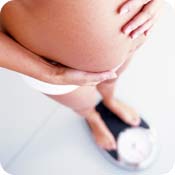
If you have a dental emergency, by all means seek appropriate treatment. Although dental anesthetics such as novocaine or lidocaine can pass through the placenta, the doses used in most dental procedures are considered safe. If you do need an anesthetic, make sure it’s given in needle form, since inhaled or intravenous anesthetics increase the odds of miscarriage in the first trimester. Epinephrine is sometimes added to local anesthetics to make them last longer, but it's recommended that you avoid this use during pregnancy, since it can increase the risk of some minor birth defects. Antibiotics such as penicillin, amoxicillin, and erythromycin are safe to use during pregnancy, but avoid tetracycline, which can permanently discolor your unborn child’s developing teeth. Under emergency circumstances, an X-ray may be necessary to help your dentist determine the health of your teeth and jaw. If not having the x-ray done poses a risk to your health, then have the X-ray-- the risk will be minimal, since your uterus will be shielded with a lead apron. What’s Good for You is Good for Your Baby Generally speaking, if a dental procedure improves your overall health, it’s probably good for your baby as well, so go ahead with it during pregnancy. Unfortunately, most women don’t visit their dentist during pregnancy, even if they have dental problems. Remember-- taking care of yourself is the best way to ensure the health of your child, so do what’s best for both of you and maintain your regular dental care. |
Dental Care During Pregnancy
Keep That Glittering Smile
‹ Previous Page Page 2 of 2

.jpg)




Member Comments